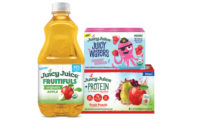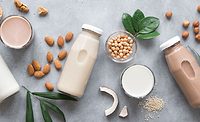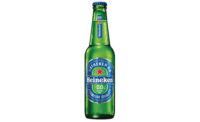R&D Feature
Immunity-conscious consumers seek fortified beverages
Consumers seek improved health, on-the-go nutrition

As consumers stay busy — be it on-the-go or at home — experts note that the demand for convenient nutrition has become the norm. Yet, with pandemic concerns boosting consumer attention to their immune systems, more are seeking foods and beverages with a variety of healthy attributes.
Pam Stauffer, global marketing programs manager for Cargill, Wayzata, Minn., notes consumers now expect beverages to support a healthy lifestyle. In fact, she says data from HealthFocus International states that 55 percent of global consumers always or usually choose food or beverages that provide protective or preventative health benefits. Yet, convenience also remains paramount, giving portable nutritious beverages an edge, she says.
In response, beverage-makers are rolling out vitamin- and mineral-fortified beverage across the market, including coffees, teas, bottled waters and more.
“Scan the beverage aisles and you’ll find dairy alternative drinks with added protein and nutrients, and functional iced coffees packed with antioxidants, protein or caffeine,” Stauffer says. “Even water is embracing the functional wave, with offerings infused with everything from plant sterols to prebiotics.”
Kevin L. Ohashi, chief executive officer of Phenolaeis, Jamaica Plain, Mass., says that the current Covid-19 environment has heightened awareness about the importance of good health, especially during stressful times.
“More and more people understand that food is a major enabler of health: ‘Let food be thy medicine.’ People understand more and more that a healthy diet/food regimen helps to maintain excellent quality of life,” he says. “People also understand hydration is key for health and wellbeing, so beverages are a key food segment.”
Offering a boost
With healthy living commanding such a strong role in consumers’ lives, beverage-makers are turning to functional ingredients — emerging and tried-and-true — for their fortification needs.
On the traditional side, vitamin D has been getting a renewed endorsement from health professionals. Steve Fink, vice president of marketing at PLT Health Solutions, Morristown, N.J., says that since the beginning of 2020, health agencies and officials around the world have been recommending consumers take a greater interest in vitamin D levels.
In July, the FDA positively assessed the safety of PLT’s Earthlight Whole Food Vitamin D, publishing notice of its permissible use as a nutrient supplement for food and beverage products in the Code of Federal Regulations (CFR 172.382).
“As a whole food, plant-based, clean-label ingredient, Earthlight supports virtually every major food and beverage market trend: vegan, no solvents used in production, no carriers, it’s not an extract and more,” he says. “This can really help product developers differentiate their offerings if they choose to fortify with vitamin D.”
In 2020, PLT also launched three new ingredients in the active/sports nutrition performance area, all designed to formulate well in beverages: Slendacor WD, Dynagenix Muscle & Joint Formula, and RipFACTOR Muscle Accelerator.
Phenolaeis’s Ohashi says the company recently developed a Palm Fruit Bioactive Complex that is tailored to consumers’ preferences toward “natural” and “clean, clear label” qualities.
“In this context, ingredients such as palm fruit extract and its ‘Powered by Palm’ food system emphasizes the natural origin of trusted, healthy ingredients and results in clean, clear label opportunities,” he says.
Patrick Stano, brand manager at Stauber Ingredients, Fullerton, Calif., adds that minerals such as zinc and magnesium, and prebiotics for immune support, are all seeing a boost. For example, Aquamin Soluble, a plant-based calcium source from red algae offered by Stauber, has seen booming sales and is being included in more and more beverages every year, along with its sister product, Aquamin Mg Soluble, he says.
Cargill’s Stauffer notes that plant sterols offer another avenue for brands looking to bring consumers beverages with proven health benefits.
“Backed by more than 50 years of clinical research and an approved FDA heart health claim, plant sterols have been shown to help lower cholesterol,” she says. “Found in fruits, vegetables, seeds and nuts, plant sterols have been clinically shown to reduce bad cholesterol (LDL) from 8 to 15 percent by blocking cholesterol absorption.”
Cargill’s CoroWise plant sterols offer a concentrated form of this compound that can be used by beverage manufacturers as they do not negatively impact taste or texture, Stauffer adds.
Fortification challenges
Although natural ingredients check off numerous boxes for consumers — trusted, healthy, etc. — these products are not without their challenges.
Because natural materials might carry contaminants, quality control and certified origination are key ensuring credibility of natural extracts, Phenolaeis’s Ohashi says. Furthermore, some of these natural extracts and fortification vitamins used for fortification can exhibit offnotes.
“Bitterness modulation is key to ensure acceptable, even desirable, taste profiles to ensure strong consumer acceptance and product purchase/repurchase,” he says. “An ingredient like palm fruit extract is a breakthrough ingredient with health benefits that consumers can feel and with ease of formulating, including flavor-enhancement, that product developers appreciate.”
Stauber’s Stano notes that alternative sweeteners also help make otherwise bitter beverages appeal to the palate.
“[Stauber] offers Stevia FSE, an enzymatically modified stevia that provides sweetness without the negative aftertaste other forms of stevia provide,” he says. “As a novel sweetener with a tart flavor, Stauber also offers Pomma+ Nectar, made exclusively from California Pomegranates, high in antioxidants and with a low glycemic index.”
Andy Ohmes, global director of high-intensity sweeteners at Cargill suggests stevia combined with erythritol.
“Stevia is well-accepted by consumers and options like Cargill’s ViaTech stevia leaf extract or EverSweet stevia sweetener provide significant improvements in sweetness quality compared to traditional stevia leaf extracts,” he says. “Adding Zerose erythritol to the formula helps round out the sweetness profile, and it has flavor-masking properties that minimize the off-notes associated with many vitamins and minerals."
Vince Forte, technical development director at Morre-Tec Industries Inc., Union, N.J., notes another challenge for fortified beverages is their capacity to supply enough of the desired nutrients in a water-based system while meeting the recommended daily allowances.
“Vitacyclix, a division of Morre-Tec, has a unique blended liquid emulsification (BLE) technology to address this challenge effectively with fat-soluble vitamins so they can be used in aqueous systems without changing taste and texture quality.”
A healthy outlook
With so many fortification innovations already in play, the outlook is bright for these beverages.
“I do not see the ‘Let food be thy medicine’ ideality losing momentum. If anything, the need for fortification and personalized nutrition will increase as the population ages and as stress levels of daily life continue to increase,” Phenolaeis’s Ohashi says. “Beverage brands that offer consumers great tasting products with noticeable, scientifically backed benefits will take a bigger share of the continued growth in these product categories.”
In line with this, Archer Daniels Midland Co. (ADM), Chicago, released a statement in October denoting five global trends that it predicts will shape the food industry in 2021: more proactive consumer approaches to nourishing mind and body; sustainability in products purchased; the gut microbiome as a gateway to wellness; plant-based food expanding beyond food; and transparency in building consumer trust.
Vince Macciocchi, president of nutrition at ADM says its OutsideVoiceSM consumer insights revealed that 31 percent of consumers are purchasing more items tailored for their health, and 50 percent report a preference for foods and beverages that contain beneficial ingredients.
“The global health crisis has changed consumer preferences in new and unexpected ways,” he said, in a statement. “We are seeing a heightened demand for foods and beverages that support immune systems, enhance our mood and reduce our environmental impact, driven in part by emerging human tensions.”
Macciocchi says this has provided an opportunity for brands to develop disruptive new products that will change the way we eat and drink.
“It’s going to be a year of innovation, marked by significant breakthroughs in nutrition,” he concludes.
Looking for a reprint of this article?
From high-res PDFs to custom plaques, order your copy today!






